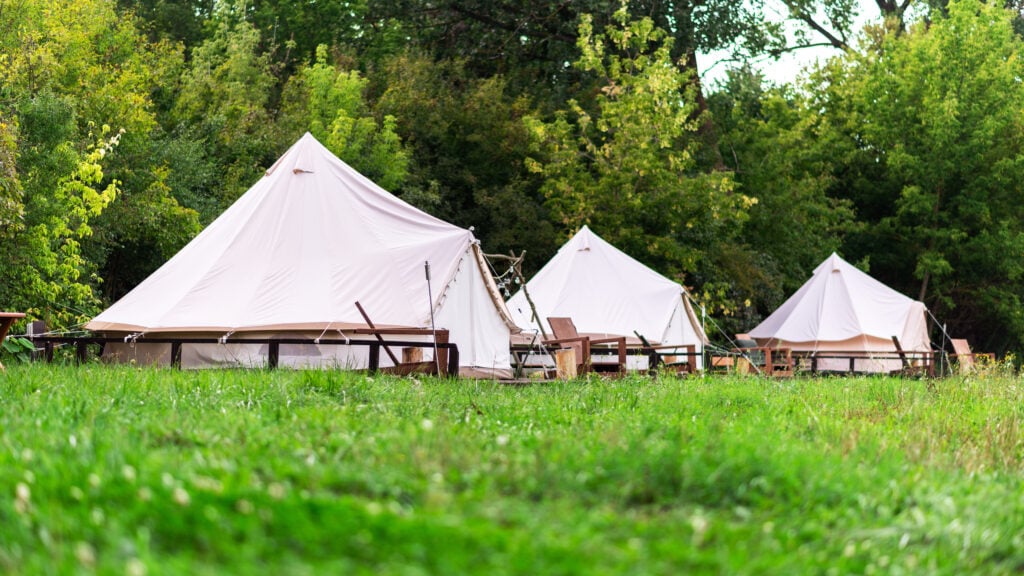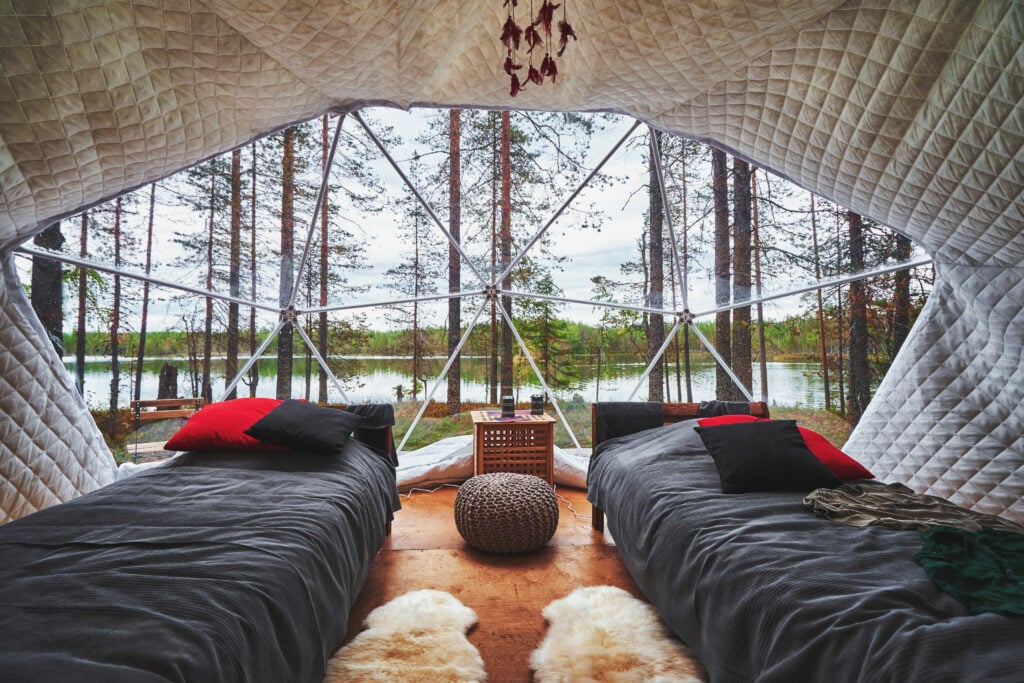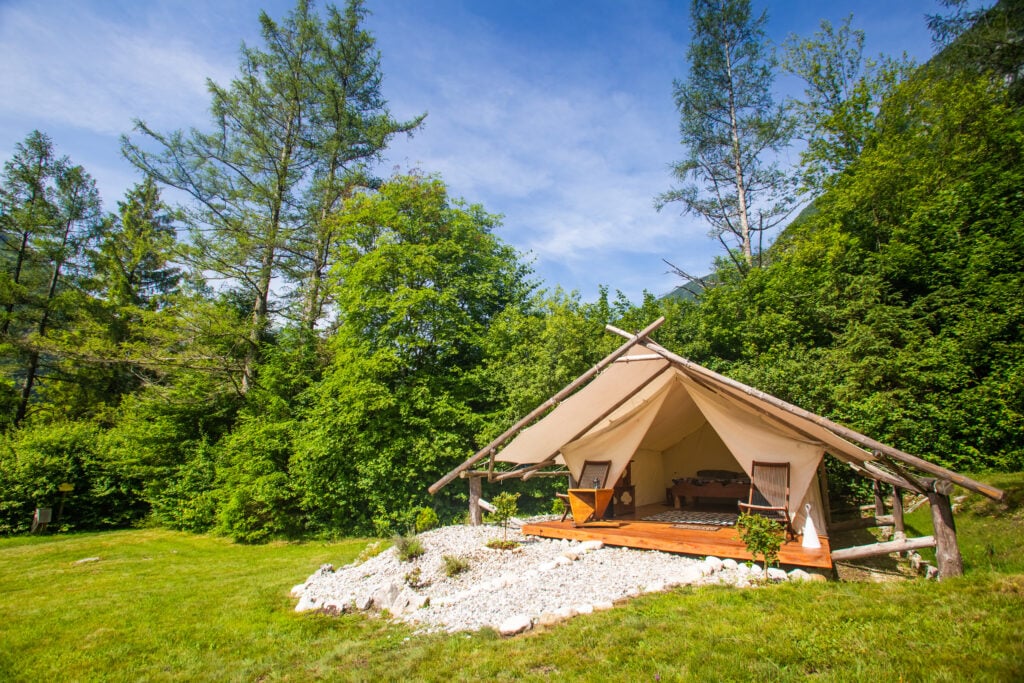
What to Do After Buying a Motorcycle
What To Do After Buying a Motorcycle After buying a new motorcycle, your inclination may be to begin riding right away. Although you may want
What is glamping? Glamping is short for “glamourous camping” and it refers to a form of elevated camping. Pods, tents, yurts, tipis, and treehouses are typical amenities that guests may enjoy during a glamping experience. Just as with campgrounds or RV parks, operating a glamping resort can involve a variety of safety risks (for example, boating accidents, slips and falls, etc.). As a glamping resort owner, you want to be sure that you have appropriate insurance coverage in place before an incident occurs.

Knowing what insurance policies to select for your glamping resort can be difficult. By talking with a local insurance agent about what services your resort offers, you can get a better idea of what coverages you should consider. Below are some common coverages that glamping resort owners often consider.
Insurance can help to protect the investment that you have made in your glamping resort. Obtaining quotes and prices from different insurance companies is a great start. Contact Cross Insurance to start your quoting process and so we can help to provide you options from different insurance companies we represent.

One way to reduce potential risks as a business owner is by creating a safety checklist Below are some areas to check around your resort to maintain a safe environment for both you and your guests.
Every glamping resort has its own unique amenities, offerings, and needs. If you have particular assets you would like to insure, are concerned about certain risks or hazards, or would just generally like to learn more about potentially available coverage options, don’t hesitate to reach out to your local insurance agent. Here are some common additional coverages that glamping businesses may want to consider.
As someone who enjoys the outdoors, you know the weather it is unpredictable. Generally, glamping resorts are found in remote wooded areas, subject to heightened weather perils. If a windstorm caused a tree to crash into your main office building, the repairs could take weeks. Being closed for business means you could miss opportunities for potential income. If your business is forced to close for a covered peril, business interruption insurance could help with costs like operating expenses. You can commonly add this coverage to your commercial property insurance. Some of the typical business interruption perils may include, but are not limited to:

To request a quote for your glamping resort, you can fill out our form here. From there, an insurance professional will collect more information and details on what policies and coverage limits you are interested in, among other details. Some of these details may include, but are not limited to:
These, and other factors, will determine what you will pay for insurance premiums. At Cross Insurance, we work with a number of insurance carriers, which means more options to choose from when it comes to selecting a plan for your glamping business.
___________________________________________________________________
This article is for general informational purposes only and is not to be relied upon or used for any particular purpose. Cross Insurance shall not be held responsible in any way for, and specifically disclaims any liability arising out of or in any way connected to, reliance on or use of any of the information contained in this article. The information contained or referenced in this article is not intended to constitute and should not be considered legal, insurance, accounting or other professional advice, nor shall it serve as a substitute for the recipient obtaining such advice. The views expressed in this article are that of its author and do not necessarily represent the views of Cross Financial Corp. and its subsidiaries and affiliates (“Cross Insurance”) or Cross Insurance’s management or shareholders.

What To Do After Buying a Motorcycle After buying a new motorcycle, your inclination may be to begin riding right away. Although you may want

New Hampshire Homeowners Insurance How to Get Insurance Quotes for Your Home in NH When it comes to selecting an insurance policy for your New

What to Do After Buying an Existing Business The time period after buying a business can be both exciting and stressful. Making an investment into